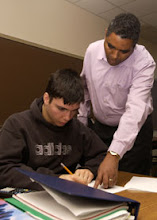This past week I sat in a gathering designed to bring
participants up to speed on the concept of sustainability. One challenge involved
defining sustainability. Conceptually,
the task quickly spun out of control. Like a snowball set loose to roll from the
highest peak of Mount Everest, sustainability whether by
definition, concept, application or approach has become as elusive as it is ubiquitous
and, perhaps, utopian in the Greek
sense of the word, no place. The American
Heritage Dictionary defines sustain to mean keep in existence or maintain—implying
self-sustain. There is no judgment implied by definition, yet the desirability of
sustaining humanity and humanity’s superstructure on the planet is implied.
An equal, or perhaps, more interesting challenge came when the concept of resilience was raised. First introduced by Canadian ecologist C.S. Hollings in 1973 (Resilience and stability of ecological systems in Annual Review of Ecology and Systematics 4: 1-23), the term initially focused on the speed of return from disturbance for an ecosystem, a steady-state perspective. In 2004 Walker, Hollings et al respun the concept focusing instead on system dynamics, a complex adaptive systems perspective. In essence,
An equal, or perhaps, more interesting challenge came when the concept of resilience was raised. First introduced by Canadian ecologist C.S. Hollings in 1973 (Resilience and stability of ecological systems in Annual Review of Ecology and Systematics 4: 1-23), the term initially focused on the speed of return from disturbance for an ecosystem, a steady-state perspective. In 2004 Walker, Hollings et al respun the concept focusing instead on system dynamics, a complex adaptive systems perspective. In essence,
[t]he implications of
this interpretation of SES [social-ecological systems] dynamics for sustainability science include changing the focus from
seeking optimal states and the determinants of maximum sustainable yield (the
MSY paradigm), to resilience analysis, adaptive resource management, and
adaptive governance. (Source: http://www.ecologyandsociety.org/vol9/iss2/art5/)
I wonder: is the concept of sustainability a first approximation
response to humanity’s ability to direct the planet’s processes and resilience as
a second approximation an open acknowledgement of the truth of Isaac Asimov’s (2004)
supposition: The only constant is change, continuing change, inevitable change,
that is the dominant factor in society today. No sensible decision can be made
any longer without taking into account not only the world as it is, but the
world as it will be?
Further I wonder: are sustainability and resilience separate
concepts? nested concepts? complementary
concepts? substitutable concepts? same concept-different clothing? Is one a
loss leader, a precursor for the other? What examples exist to demonstrate sustainability in the absence of resilience? Or resilience in the absence of sustainability?
Given that fuzzy definitions can get in the way of clear
thinking, I’m open to redirection. Jump in!
 Kay Strong, Ph.D., Southern Illinois University, M.T., University of Houston, M.A., Ohio University; Associate Professor at Baldwin-Wallace College; Areas of expertise: international economics, contemporary social-economic issues, complexity and futures-based perspectives in economics. E-mail: kstrong@bw.edu
Kay Strong, Ph.D., Southern Illinois University, M.T., University of Houston, M.A., Ohio University; Associate Professor at Baldwin-Wallace College; Areas of expertise: international economics, contemporary social-economic issues, complexity and futures-based perspectives in economics. E-mail: kstrong@bw.edu
